אמש יום שני ליל כ"ח פרשת וארא, נכנסו אל הגה"צ רבי אליעזר ברלנד שליט"א אנשי שלומינו מהעיר ראש העין בשרון. זכו הם לשמוע דברי אלוקים חיים במשך קרוב לארבעים דקות. לפניכם תקציר מתוך השיעור:
ִאת השיעור החל הרב שליט"א בעניין הפסוק "שמעון ולוי אחים כלי חמס מכרותיהם", ובשאלת הרמב"ן הידועה עליה מורינו הרב חוזר רבות; אם שחררו האחים את דינה, ובאמת נתחייבו אנשי שכם מיתה, אז מדוע יעקב בעצמו לא הלך לשחרר את בִתו, ולא זו בלבד אלא שעוד מקלל את בניו שעשו זאת. מעניין זה עבר לדבר במחלוקת הרמב"ם והרמב"ן על הסיבה שבגללה נתחייבו אנשי שכם מיתה, הרמב"ם סובר שנתחייבו מיתה מכיון שלא מיחו בשכם בן חמור, ואילו הרמב"ן חולק עליו וסובר כי מה שנתחייבו אנשי שכם מיתה בגלל שנחשבים הם כבהמות לאחר מעשה הנבלה.
משם עבר לדבר על מחלוקות האחים ויוסף האם עוף נחשב בשר או לא הביא בזה את שיטות הרדב"ז והכרתי ופלתי בדעת הרמב"ם. והנפקא מינא מזה לעניין בן פקועה ובסוגיית אבר מן החי. מעניין לעניין הביא את הרמב"ם על אבר מן החי שאם שחטו שני סימנים עדיין נחשב כחי, והביא את שאר המקומות בהם עוסק בעניין זה כהלכות טומאת מת. לאחר מכן הביא את הגמרא בחולין שאם אדם רוצה להתרפא שיאכל מבית השחיטה.
בחלקו השני של השיעור התייחס הרב שליט"א לבניה של צרויה והביא את המדרש רבה שהיו בניה קלים ועפים באוויר בזכות קדושתה שהייתה כצוּר. ודיבר מכך שעשהאל היה רץ על ראשי השיבולים, וכן יואב היה זריז ומהיר. והביא את המעשה בו הרג את אבנר בן נר.
בהמשך השיעור דיבר מורינו הרב שליט"א מעניין קבורת רחל ומכך שיוסף הייתה לו כביכול טענה על יעקב אביו מדוע לא קברה בתוך העיר, ואילו באמת קברה על פי הדיבור. וכיום רואים שאם הייתה קבורה עוד מעט פנימה לבית לחם כבר לא היו יכולים להגיע בקלות כ"כ לקברה.
משם עבר לדבר על מכירת יוסף, והביא שמה שהישמעאלים לא רצו לקנותו זה מכיוון שהיה בן דודם והכירוהו שהוא בן יעקב. ואמר כי "פסים" אלו ראשי תיבות של פוטיפר, סוחרים, ישמעאלים, מדיינים, והביא שיוסף עבר חמש ידיים עד שעבר לפוטיפר. ודיבר מכך שכאשר שמו אותו בבור אז אמרו שאם הוא דובר לשון הרע אז הנחשים והעקרבים יהרגו אותו ומשלא הרגוהו רצו להוציאו מהבור אך אז הגיע שמעון ואמר כי מה שלא עוקצים אותו זה מכישוף. ובגלל זה שמעון נענש והגיע בגלגול של רבי שמעון בר יוחאי שהיה צריך לשהות במערה שתים עשרה שנה. והביא את כל מעשה המכירה מיד ליד כנ"ל, עד שלאחר עשרים ושתים שנה הבינו האחים שהם טעו כאשר היו מול יוסף ואמרו "אשמים אנחנו" ואמר הרב ובזה סיים את השיעור כי לפעמים לוקח לאדם עשרים ושתים שנה להבין את הטעות שלו שהכל בגלל שמכר את הצדיק!.
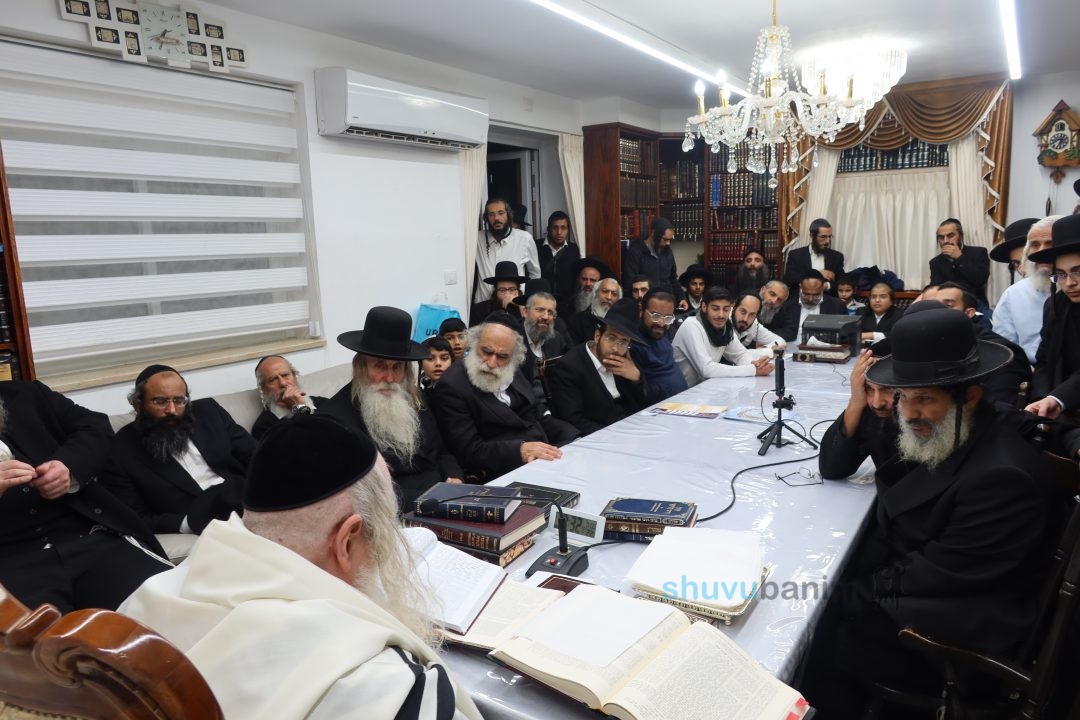
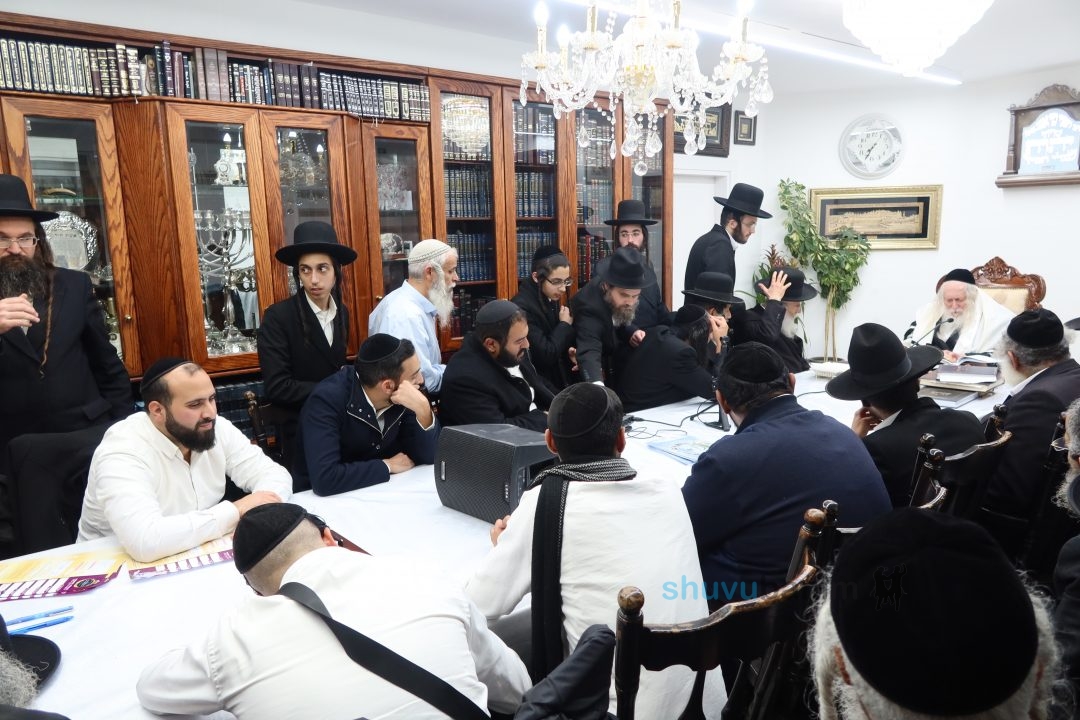

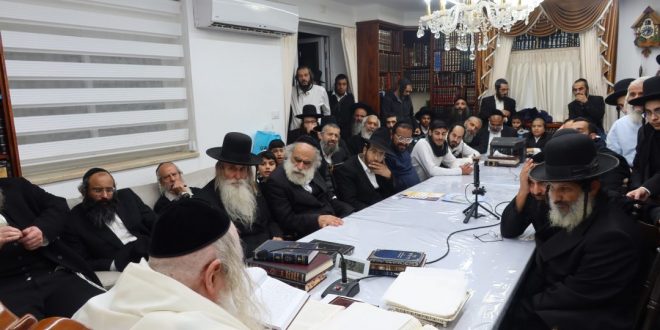
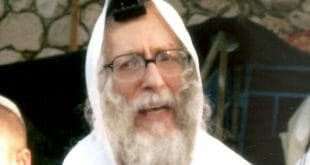
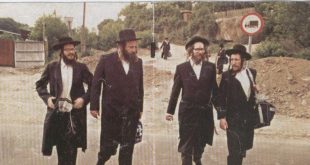
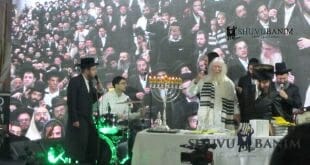

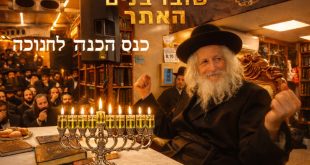
Last night, on Monday evening of the 28th of Tevet, Parashat Va'eira, our peaceful people from the city of Rosh Ha'ayin in the Sharon region entered the study hall of Rabbi Eliezer Berland, may he live long. They had the privilege of hearing the words of the living God for close to forty minutes. Here is a summary of the lesson:
The Rabbi commenced the lesson by discussing the verse "Shimon and Levi are brothers, weapons of violence their trade." He addressed the well-known question of the Ramban about whether the brothers were justified in releasing Dinah, and if the people of Shechem indeed deserved death, why Jacob himself did not go to release his daughter. Moreover, Jacob not only refrained from freeing her but also cursed his sons for their actions. This led to a discussion of the disagreement between the Rambam and the Ramban regarding the reason for the death penalty imposed on the people of Shechem. The Rambam believed it was because they did not protest the violation of Shechem, the son of Hamor, while the Ramban disagreed, asserting that their punishment was due to being considered like animals after the incident of the rape.
The discussion then shifted to the disputes among the brothers and whether fowl is considered meat or not. The Rabbi cited the opinions of the Radbaz, the Kreti, and the Pleti regarding the Rambam's perspective on the matter. This discussion led to the question of Ben Pekuah and the issue of a limb taken from a living animal. The Rabbi interestingly brought the Rambam's view on a limb taken from a living animal, stating that if two signs were slaughtered, it is still considered alive. He referenced other places where the Rambam discussed the topic of ritual impurity due to a dead body. Subsequently, he brought a Talmudic discussion in Chulin about someone wanting to be healed by eating from the house of a butcher.
In the second part of the lesson, the Rabbi addressed the sons of Zeruiah and brought the Midrash Rabbah that described them as light and swift in the air due to the sanctity of their mother Tzruya, who was like a bird. He elaborated on this by mentioning Asahel running over the heads of the sheaves, and Joab being quick and agile. He then brought the story of Joab killing Abner, son of Ner.
Continuing, the Rabbi shared interesting insights into the burial of Rachel and the alleged complaint Joseph had against his father Jacob for not burying her in Bethlehem. Today, it is evident that if Rachel were buried a bit further into Bethlehem, reaching her grave would not have been as easy. He then delved into the topic of Joseph's sale, explaining that the reason the Ishmaelites did not want to buy him was that he was their distant relative, and they recognized him as Jacob's son. He mentioned that "Potipar" stands for traders, Ishmaelites, Midianites, and brought the explanation that Joseph passed through five markets before reaching Potipar. He discussed the incident where Joseph was thrown into the pit, and they said that if he spoke slander, snakes and scorpions would kill him. However, when they did not harm him, they wanted to lift him from the pit. But then Shimon came and said that if they did not prick him, it was due to witchcraft. Therefore, Shimon was punished, and it manifested in the reincarnation of Rabbi Shimon bar Yochai, who had to stay in a cave for twelve years. The Rabbi concluded the lesson by summarizing that sometimes it takes a person twenty-two years to understand their mistake, all because they sold the righteous one.